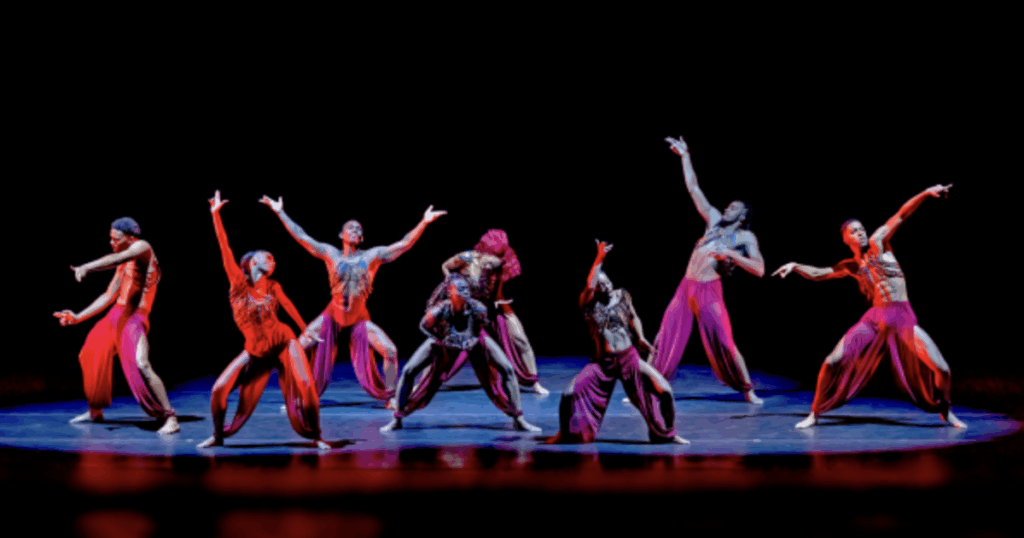As the assault on Diversity, Equity, and Inclusion (DEI) intensifies, one thing is glaringly apparent: Black-led organizations must keep our focus — on our mission and especially when it comes to fundraising.
Corporate America, once eager to support nonprofits serving underrepresented communities, has succumbed to fear. Pledges made in the wake of George Floyd’s murder have quickly evaporated, and many institutions that relied on those dollars now face a growing crisis. But this moment of reckoning has reignited an age-old truth born in the bowels of slavery: our survival depends on collective work and responsibility.
We must fervently expand our network of allies to build, support, and sustain our own institutions. And in Denver, that’s exactly what’s happening.
At Cleo Parker Robinson Dance (CPRD), we’re preparing for a milestone — the grand opening of a 25,000-square-foot expansion next to our historic headquarters this January. The $25 million project was years in the making, built on a public-private partnership forged before the anti-diversity movement of the current Trump administration.
But what’s most remarkable isn’t the size of the building — it’s how it is being paid for.
About 10% of the project cost came from Black donors — in a city that is about 8.8% Black. That’s right: individuals, families, and Black-owned businesses stepped up to ensure this dream became reality. In doing so, they shattered a myth that Black communities won’t support their own cultural institutions.
Yes, we are fortunate to also have a broad swath of individual support across racial lines, religious affiliations, and business sectors. Foundation, government grants, and corporate contributions were also vital. But to be clear, Black generosity was a defining factor in this campaign. And it’s a model others can replicate.
How did we do it? Bold vision and persuasive mastery of our own narrative.
For 55 years, CPRD has been rooted in education and empowerment. Our studios have been sanctuaries for young people of all races — but especially African Americans — to learn our shared history through dance. From ballet to hip hop, tap to contemporary, our programs instill pride, discipline, and cultural awareness.
During the campaign, we leaned into that mission. Donors responded because they understood CPRD wasn’t just a dance company. It’s a community institution, an archive of Black artistry, and a launchpad for future leaders in the industry.
Gary Abbott, Lisa Johnson-Willingham, and Karah Abiog all trained at Cleo Parker Robinson Dance.
The new addition features an expanded auditorium, state-of-the-art acoustics, flexible community spaces, upgraded studios, and offices. It’s not just a home for dance, but a venue for concerts, film, theater, lectures, and spoken word. In a city like Denver, where such venues are scarce for our community, this is transformative.
But our ambitions go further.
CPRD is committed to preserving and elevating the legacy of Black cultural treasures, like Chuck Davis and Talley Beatty, whose artworks are disappearing from the national stage. Our repertoire includes more works by Donald McKayle than any other company in the country, and we continue to teach the Dunham Technique to keep Katherine Dunham’s choreography masterpieces alive on stage.
As a founding member, we’re committed to the principles of the International Association of Blacks in Dance to enrich the opportunities for Black creatives to thrive. We want to honor the impact and brilliance of Lula Washington, Jeraldyne Blunden, Joan Myers Brown, and Ann Williams, not just in textbooks but on stages across the country and around the globe.
Fashion, music, drama, and visual arts all converge through Black dance, and we have collaborated with trailblazers like Maya Angelou, Debbie Allen, Nick Cave, and Ronald K. Brown. Black dance is alive. It just needs our collective commitment to continue to flourish.
That’s why our grand opening week, January 15–18, is more than a ribbon-cutting.
The four-day festival will showcase emerging talent, honor our elders, and celebrate the power of partnerships, in particular Black philanthropy. It’s an open invitation to all who believe in the future of Black dance. Come to Denver to witness what true collaboration can do and to support an ambitious vision.
—
**About the Author**
Malik Robinson is president and CEO at Cleo Parker Robinson Dance in Denver, Colorado.
—
**Stay informed and connected — subscribe to The Philadelphia Tribune NOW! Click Here.**
—
**Community Guidelines Reminder**
– Keep it clean. Please avoid obscene, vulgar, lewd, racist, or sexually oriented language.
– Please turn off your caps lock.
– Don’t threaten. Threats of harming another person will not be tolerated.
– Be truthful. Don’t knowingly lie about anyone or anything.
– Be nice. No racism, sexism, or any sort of -ism that is degrading to another person.
– Be proactive. Use the ‘Report’ link on each comment to let us know of abusive posts.
– Share with us. We’d love to hear eyewitness accounts and the history behind an article.
—
**Additional Note**
Misty Copeland broke barriers as the first Black female principal dancer with American Ballet Theatre. Now, through her nonprofit, she’s making dance more accessible for children of color.
https://www.phillytrib.com/commentary/denver-dance-community-shows-power-of-black-philanthropy/article_44f51e6c-431e-49c2-8b3b-931fdd56418d.html

